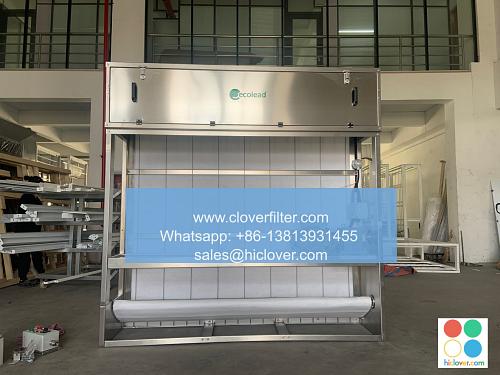The Pros and Cons of Ionizers for Indoor Air Quality

Indoor air quality is a significant concern for many individuals, and the use of ionizers for air purification has gained popularity in recent years. These devices work by emitting negative ions that attract and trap pollutants, improving the overall air quality. In this article, we will delve into the pros and cons of ionizers for indoor air quality, exploring their application areas, including home air purification, commercial air cleaning, and industrial air treatment.
What are Ionizers and How Do They Work?
Ionizers, also known as negative ion generators, are electronic devices that produce negative ions, which are then released into the air. These negative ions combine with pollutants, such as particulate matter, dust, pollen, and pet dander, creating larger particles that are more easily trapped by the device’s filter or fall to the ground, reducing the amount of airborne pollutants.
Pros of Ionizers for Indoor Air Quality
The use of ionizers for indoor air quality has several benefits, including:
* Improved air quality: Ionizers can effectively remove airborne pollutants, creating a healthier indoor environment.
* Reduced respiratory issues: By removing allergens and irritants, ionizers can help alleviate respiratory problems, such as asthma and allergies.
* Low maintenance: Ionizers are relatively easy to maintain, as they often have washable filters and do not require frequent replacement.
* Energy efficiency: Many ionizers are energy-efficient, using minimal power to operate.
Cons of Ionizers for Indoor Air Quality
While ionizers can be effective in improving indoor air quality, they also have some drawbacks, including:
* Ozone production: Some ionizers can produce ozone, a known respiratory irritant, which can exacerbate respiratory issues.
* Over-ionization: Excessive negative ion production can lead to over-ionization, causing the air to become stale and stagnant.
* Filter replacement: While some ionizers have washable filters, others may require frequent filter replacement, which can be costly.
* Incompatibility with other systems: Ionizers may not be compatible with other air purification systems or HVAC systems, which can limit their effectiveness.
Application Areas for Ionizers
Ionizers can be effectively used in various application areas, including:
* Home air purification: Ionizers can be used to improve indoor air quality in homes, particularly in areas with poor ventilation.
* Commercial air cleaning: Ionizers can be used in commercial settings, such as offices, restaurants, and hotels, to improve indoor air quality and reduce the spread of airborne pollutants.
* Industrial air treatment: Ionizers can be used in industrial settings, such as manufacturing facilities and warehouses, to remove airborne pollutants and improve worker health.
Conclusion
In conclusion, ionizers can be an effective tool for improving indoor air quality, but it is essential to weigh the pros and cons of ionizers before making a decision. By understanding the benefits and drawbacks of ionizers and considering their application areas, individuals can make informed choices about the use of ionizers in their homes, commercial spaces, or industrial settings. Additionally, it is crucial to select an ionizer that is energy-efficient, low-maintenance, and compatible with other systems to ensure optimal performance and effectiveness. Prompt

